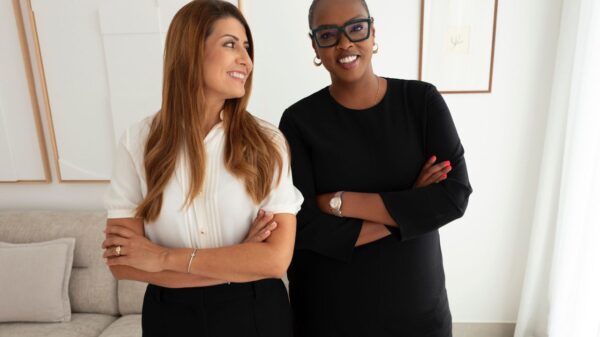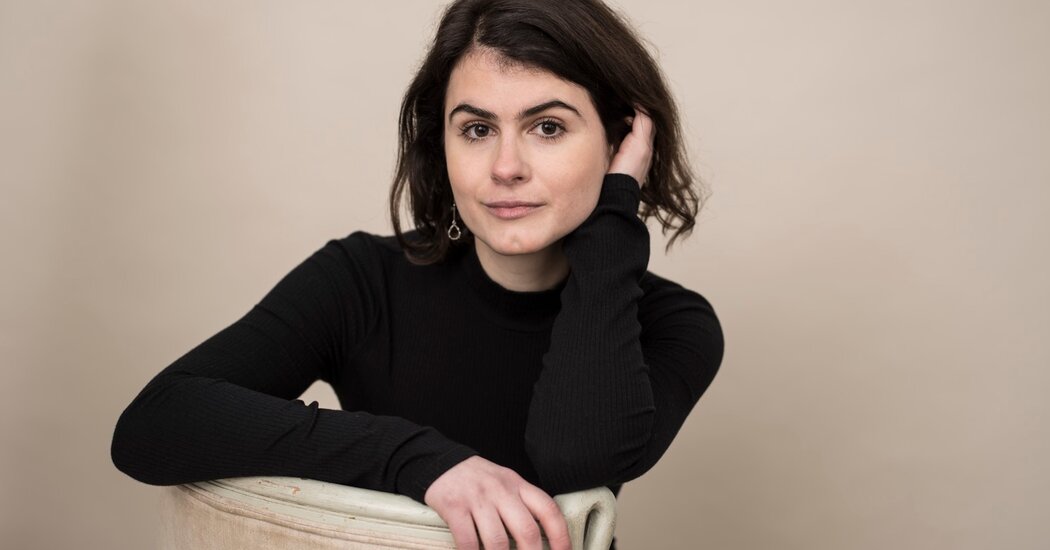A VERY NICE GIRL
By Imogen Crimp
In Imogen Crimp’s enjoyable debut novel, “A Very Nice Girl,” Anna is a working-class young woman from the outskirts of London who is training to be an opera singer and working in a jazz club for cash. It’s there that she meets Max, a not-quite-yet-divorced man who is more than a decade her senior. Charming though slightly mean (in a flirtatious way?), Max works in finance and takes her to fancy meals.
What ensues is almost so predictable as to not be: Max, with his expense account, his shiny high-rise flat with a view of the city and his weekend house in Oxford to which she’s not invited, makes clear that they are just “having fun.” And Anna, his “dark-eyed bohemian,” as he calls her — who initially agrees to the fun thing, of course — falls in love. The power dynamic between them, unaligned from the start, becomes gaping as he persuades her to abandon her studies to spend more time with him. He starts giving her money and she, once so committed to her art, starts to lose what little independence she’d found.
Anna, it turns out, is not so much “nice” as she is unformed. She is also: naïve, insecure, full of self-doubt, but also talented, trying to find her way in a place where she feels like an outsider among her wealthy classmates and shaping herself into the person she thinks Max wants her to be. “God, why am I being so boring?” she worries of their conversations. “I would do anything he wanted,” she thinks during sex.
Like her protagonist, Crimp briefly studied to be a singer at a London conservatory, which may explain why passages set in this milieu are the ones where her writing — and her protagonist — find their strength. Onstage, Anna is confident and brave, even “invincible,” feeling like “every nerve in my body was alive.”
“I liked that I could do something that made other people scared,” she recalls of finding her voice. “I liked discovering that I — who teachers often had to ask to repeat my answer several times, my voice was so quiet — could fill a room with sound.”
There are plenty of stories these days about what it is to be a woman observed by the “male gaze.” It’s a phrase Anna and her friends would no doubt use, if the at-times heavy-handed dialogue about tampons as “capitalist,” or Latin as the “language of the patriarchy,” is any indication. (Anna’s roommate is writing a book she describes as a “feminist deconstruction of the relationship between men and women in the internet age.”)
But Anna is not only an object of that gaze; she actually starts to mold herself into it — beginning to see herself, interpret herself, value herself, through how she perceives Max perceiving her.
“Looking at myself naked in the mirror, I’d try to see it how he would,” she says.
“I felt he was studying me too closely, appraising my worth, like I was a piece of jewelry he was considering buying.”
“I craved his look, and when I was away from him, I missed it.”
In some of these moments, “A Very Nice Girl” is an all-too-real reminder of what it is to be a woman in your 20s, searching for who you are, trying on identities or stuck in a complicated pseudo-relationship even when you know you shouldn’t be. It’s a book about assessing your worth through other people’s eyes — parents, friends, a lover — and about being observed: by an overprotective mother, by men on the tube, by those who assess her auditions, by classmates competing for her slot, and ultimately by the audience. And yet, for the strength of Crimp’s writing, it might have benefited from a less predictable plot. Vulnerable young woman alone in a new city, seduced by an older, richer man who turns out to be kind of a jerk … readers may be disappointed to find there’s no real twist here — unless, of course, you count that Anna must lose the guy to get herself back.


























